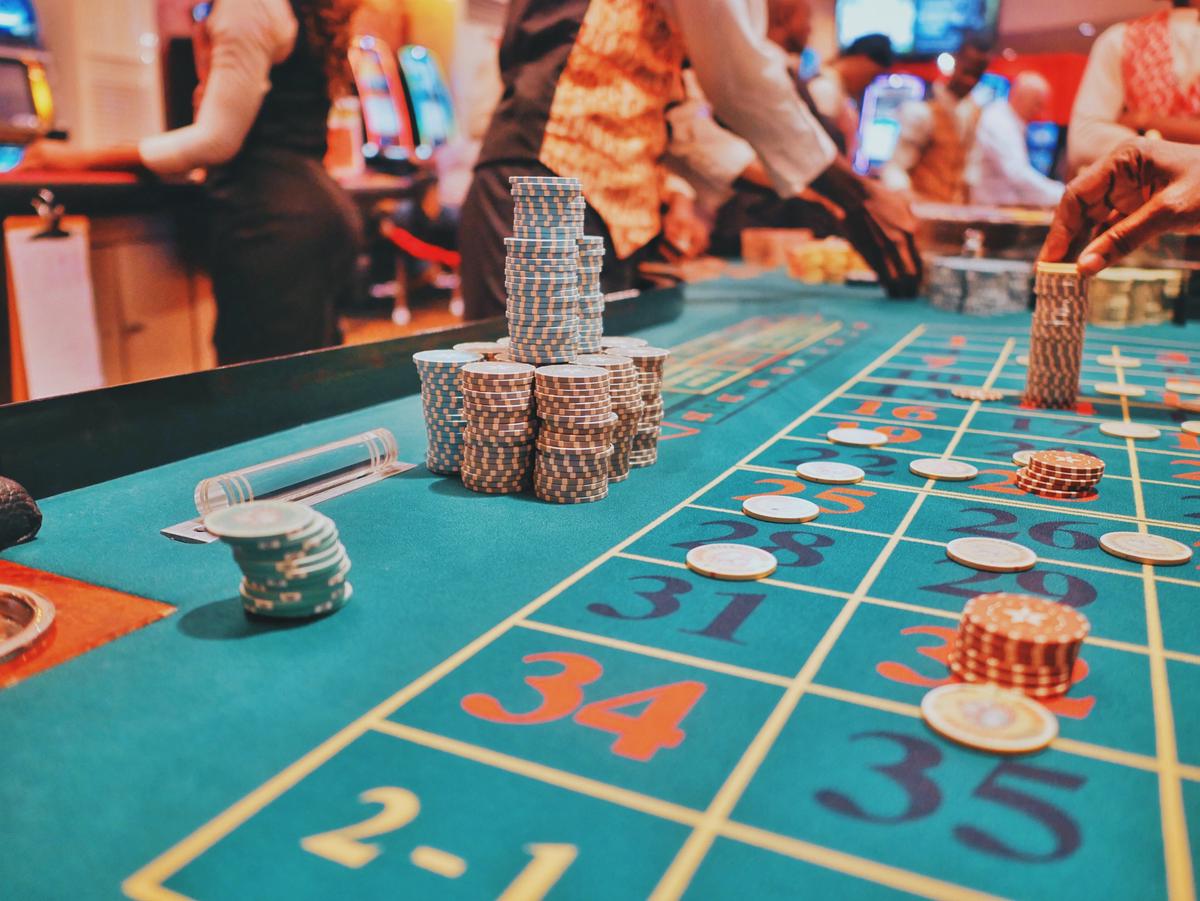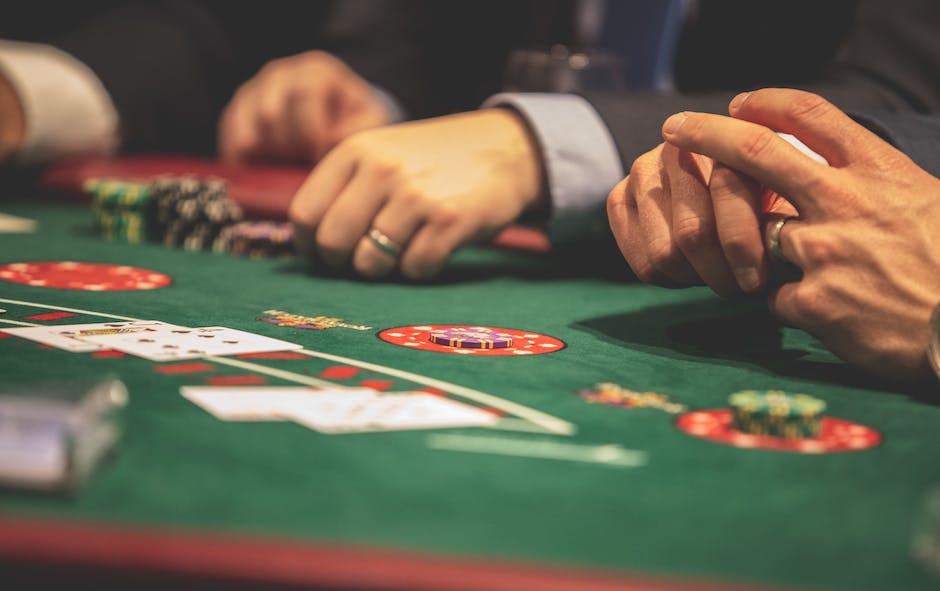BetterYouJourney.com is a participant in the Amazon Services LLC Some of the links in our posts are affiliate links. Click here to see full Disclosure.
Our relationship with money can range from the practical to the emotional, with gambling sitting somewhere in between. Gambling, for its part, is an exquisite blend of strategy, risk, and chance—entertaining, sure, but also potentially damaging if not managed correctly. This guide aims to equip you with an understanding of the bedrock concept in gambling: Money management. You’ll learn about setting a gambling budget based on a thorough personal financial assessment, the ins and outs of the ‘house edge’, risk management practices, learning from past gambling mistakes, and a bevy of practical, use-them-right-now tips for successful money management in the gambling arena. Whether you’re a novice or a seasoned gambler, this is a crucial reading aimed at empowering you to make informed, responsible, and ultimately more successful decisions.
Understanding Basic Gambling & Its Consequences
What is Gambling?
Gambling involves risking something of value on an event or activity where the outcome is uncertain. As a practice, gambling has evolved over time and now includes various forms or ways like betting on sports, playing casino games including both traditional and online platforms, lottery tickets, and even speculative investing in financial markets.
The Appeal of Gambling
The primary appeal of gambling is the chance to win more than what one has wagered. This sense of potential gain entices many individuals to participate. Other attractions might include the element of excitement or the entertainment factor of certain types of gambling. Some people also view gambling as a test of skill or strategy, especially in games like poker or betting on sports events.
Types of Gamblers
There are different types of gamblers based on their approach to this activity. Some people enjoy gambling as a recreational activity and don’t intend to make a profit. They gamble for fun, with the amount of money they can afford to lose.
However, some gamblers view it more seriously. They are conscious of their strategies and are aware of the odds. They primarily focus on games where their skills can influence the outcome, like poker.
Then there are problem gamblers – people who lose control over their gambling behavior resulting in extensive consequences.
Potential Consequences of Unregulated Gambling
While many people can gamble without falling into difficulties, others may develop problematic behavior. The consequences of unregulated or excessive gambling can be devastating and often lead to financial ruin.
Debt accumulation is an obvious risk, but there is also a considerable risk of developing an addiction, which can impact the gambler’s personal relationships, mental health, and overall quality of life. There are numerous reports of gamblers who have lost their homes, and families, and even criminal activity linked to the need to secure funds for gambling.
Importance of Understanding Gambling and Its Risks
Before anyone involves themselves in gambling, it’s vital to understand the nature of the activity and the potential risks involved. The key element to remember is the uncertainty of outcomes. There’s always a chance that you may lose, and the losses can be more than just financial.
Money Management in Gambling
Gambling should be viewed as a form of entertainment, rather than a means to earn money. In order to safeguard one’s finances from potential losses through gambling, it’s prudent to only use money set aside for recreational purposes, not the money reserved for essential living costs.
The practice of money management is a beneficial habit in such a scenario. Effective money management in gambling can establish a limit on potential losses, deter the urge to increase bets in an attempt to ‘recover’ from loss, and reduce the risk of falling into the debt trap or developing addictive behaviors.

Setting a Gambling Budget
Recognizing the Significance of a Gambling Budget
Establishing a set gambling budget is a key strategy in effective money management in gambling, suited for both professional gamblers and hobbyists alike. Implementing this plan can guide your gambling actions according to your available finances, particularly in situations where the likelihood of losses is escalating.
Assessing Personal Finances
To establish a gambling budget, it is essential first to make an honest assessment of your personal finances. Start by clarifying your income, your savings, your debts, and your monthly expenses such as rent, utilities, groceries, transportation, and other necessary costs. These aspects will help you understand how much you can realistically allocate to gambling without putting your financial health at risk.
Determining Affordability
Figuring out the affordability of the funds for gambling is the next critical step which involves determining the amount you can comfortably lose without affecting your day-to-day life or financial obligations. This should be the money that is left after you’ve taken care of all expenses and savings. It is important here to only factor in disposable income – any funds required for necessities like mortgage payments, debts, food, or education should never be included in the gambling budget.
Setting the Budget
Once you’ve looked at your finances and determined your disposable income, you can set your gambling budget. This budget should not only include the money you plan to wager but also the costs associated with gambling, such as travel, food, and accommodations if you are planning to visit a casino. It’s advisable to distinguish between the day-to-day gambling budget and the total amount you set aside for the entire duration. This will help prevent overspending on a reckless day.
Sticking to the Budget
After setting a budget, the next challenge is to stick to it. Self-discipline is key here; winning may stir up the desire to continue playing and exceed the budget, but it is essential to resist this temptation. The moment your funds for a betting session run out, stop playing. Gambling apps and online casinos often allow for setting deposit limits, which can be a useful tool in sticking to your budget.
Regular Budget Reviews
Due to the dynamic nature of personal finances and the gambling landscape, it’s important to revisit your gambling budget regularly. This habit will ensure you’re always wagering within your means, taking into account any changes to your income or outgoings. By revising your budget after significant financial changes, you maintain a risk-averse and responsible approach to gambling.
Adopting effective money management strategies in gambling is pivotal in fostering a healthy gambling culture. By creating and strictly sticking to a gambling budget, you can indulge in this recreational activity without stretching your finances thin. Further understanding the backbone of casino earnings, such as The ‘House Edge’, will enable you to play more responsibly and maintain control over your betting behavior.

Understanding House Edge
Scrutinizing the House Edge
The term ‘House Edge’ signifies the mathematical advantage that the casino, often referred to as ‘the house’, holds over the players over an extended period of all games played. It’s presented in percentages, acting as the casino’s safety net to assure profits on the bets made, irrespective of the game outcomes. Keep in mind that the House Edge is a projection of the long-run results. This implies that though a player might enjoy a successful streak in the short run, ultimately the odds will always favor the house in the long run.
Impact of House Edge on Winning Odds
When it comes to your chances of winning, the house edge plays a significant role. A game with a lower house edge means that, statistically, the player will lose less money over time. Conversely, games with higher house edges lend themselves more toward the house, meaning the player is more likely to lose over an extended period.
For instance, if a game has a house edge of 5%, this means that, on average, the casino expects to pay back 95% of the bets received and keep 5% as profit. However, it’s important to remember that these figures are averages taken over many games, meaning you could potentially win big in the short term, or alternatively, lose more than 5% in a single session.
Influence of House Edge on Bettor’s Decision
Understanding the house edge is vital when deciding where to place your bets in a casino. It helps you evaluate the risk involved with each game and choose wisely to maximize potential returns. For example, table games like Blackjack and Baccarat are known to have relatively lower house edges, while games like Keno and Big Six Wheel commonly have one of the highest.
It’s essential for gamblers to remember that a lower house edge doesn’t automatically guarantee wins. It simply means the potential losses are statistically smaller than in games with higher house edges.
House Edge and Money Management
The concept of house edge directly affects money management strategies while gambling. For instance, betting smaller amounts in games with higher house edges or making larger bets on games with lower house edges can help balance the risk and reward.
In order to craft a betting strategy that minimizes losses and increases entertainment value, players have to be conversant with the house edge of different games. Tailoring your bets to reflect risk can maximize playtime and enjoyment while limiting financial exposure.
Understanding the Power of House Edge
Bearing in mind that casinos are profit-making entities, the concept of ‘house edge’ is put in place to safeguard their profit margins. However, the knowledge thereof empowers gamblers as it broadens their decision-making capability. By understanding the house edge, bettors are equipped to make smart decisions regarding the games to engage in and to be prudent about the amount they choose to wager, thus maximizing their chances of success.

Risk Management in Gambling
Grasping the Inherent Risks in Gambling
The thrill of gambling is amplified by the intrinsic nature of risk. However, without proper control and understanding, this risk-taking becomes a perilous endeavor, leading to hefty financial implications and potential addiction. The fundamental risks involved in gambling range from overspending, emotional reliance on gambling outcomes, to the development of addictive behaviors. The first stride towards effective risk management in gambling is well-rounded understanding of these risks.
Deposit Limits and Stakes
Arguably one of the most effective strategies to minimize risk in gambling is setting deposit limits. These limits are pre-set boundaries determining how much money can be deposited into a player’s account within a certain rotation, greatly reducing the potential for overspending. Similarly, setting bet limits, or deciding in advance how much money will be spent per bet, can help effectively manage a gambling budget.
Bankroll Management
Bankroll management is a central aspect of risk management in gambling. It’s the practice of determining how much money you’re willing to risk or lose on gambling before you start playing. Splitting up your total bankroll into smaller portions for each session can help prolong your playtime and potentially minimize losses.
Emotional Control in Gambling
Emotion can strongly influence decisions during gambling, often leading to higher risk-taking. Strategies for maintaining emotional control while gambling often involve taking regular breaks, never chasing losses, and maintaining a positive mindset, emphasized by viewing gambling as a form of entertainment and not as a source of income.
The Importance of Learning Game Strategies
Understanding the rules and strategies of the games you’re playing can significantly reduce risk. For example, in blackjack, there are statistically optimal times to hit, stay, or double down, depending on what the dealer’s card is. The better you understand a game, the more informed choices you make, enhancing your chances of success.
Responsible Gambling and Self-Exclusion
Should gambling begin to negatively impact your life, self-exclusion options are often available. Self-exclusion is a process through which you can ask a gambling company to close your account for a certain period. This type of blockade functions as a ‘cooling-off’ period and can be highly effective for individuals experiencing gambling problems – it’s a clear example of how the industry as a whole takes risk management seriously.
Importance of Practicing Responsible Gambling
Understand that good risk management in gambling does not assure winnings, but it can surely help lessen your losses and keep the experience enjoyable. It’s essential to view gambling as an amusement activity rather than a money-making source. Creating a sensible gambling strategy includes understanding the odds, setting limitations on time and expenditure, and acknowledging that losing is a part of the game. This strategy will elevate your enjoyment of gambling while lowering the risk attached to it. Ultimately, responsible gambling is the key to maintaining gambling as a fun and risk-managed form of entertainment.

Learning from Gambling Mistakes
Recognizing the Common Mistakes in Gambling
To manage your money effectively in gambling, it’s imperative to be aware of common pitfalls and to learn from them. Bear in mind that everyone, even professionals, commit gambling errors. Yet, the main goal should be to learn from these regular errors and avoid them in the future.
The “gambler’s fallacy” is a widespread error, which asserts that if a particular outcome has occurred more frequently, then a contradicting outcome is likely to occur soon. For instance, after consecutively losing in a game, a gambler may be convinced that a win is impending. It’s important to know that each bet or event in gambling is independent of the preceding ones.
Many gamblers often overlook the importance of managing their bankroll. This mistake can be avoided by sticking to a budget or setting a spending limit on gambling. Establishing a ‘stop loss’, or defining a maximum loss, before deciding to put the play to rest is a crucial practice.
Attempting to recover previous losses by continuing to gamble, also known as chasing losses, is a common yet destructive practice. It’s important to accept losses as part of the game without letting emotions take control.
Learning From Gambling Mistakes
Recognising these common mistakes is only the first step. Understanding how and why these mistakes were made is equally vital in preventing them from reoccurring. Implementing this reflection process contributes significantly to improved decision-making and money management in gambling.
One of the ways gamblers can learn from their mistakes is by keeping gambling records. These records will serve as a reflection tool to track one’s gambling activities and outcomes over time. It can help identify patterns of mistakes or successful strategies.
Another way is through education. Reading books on gambling, attending workshops, or joining established gambling communities can provide a wealth of knowledge including tips on managing funds, choosing the right bets or games, or even learning psychological aspects of gambling.
Improving Money Management Skills in Gambling
Money management is one of the most crucial aspects of successful gambling. Acquiring these skills greatly reduce the risk of severe financial losses and significantly enhance the chances of long-term betting success.
One of the core aspects of money management is setting a gambling budget. This budget should be money that one can afford to lose.
Additionally, using the “unit” system is a helpful tool for bet sizing. This means breaking the budget into smaller parts (units), which can help ensure that even after a losing streak, there’s still a budget remaining to recover.
Lastly, seeking out professional help can also be a positive step in improving money management. Financial advisors or therapists specializing in gambling behaviors can provide valuable guidance and strategies.
The journey to mastering gambling is a lifelong endeavor. Even the most successful gamblers constantly learn from their mistakes, converting these experiences into improved tactics for their future games.

Practical Tips for Successful Money Management in Gambling
Recognizing the Significance of Budgeting in Gambling
A crucial step towards achieving sound money management in gambling is the fabrication of a budget. This strategy involves separating a distinct sum specifically allocated for gambling activities. This sum should be disposable income, not required for necessities like household bills, food, or rent. Once this budget is depleted, it’s pivotal to resist the allure of spending additional funds. This is why rigid adherence to the pre-set budget is utterly crucial.
Setting Win and Loss Limits
Quite often, people are taken over by the thrill of a potential big win and can end up losing more than they can afford. To avoid this, it’s advised to set win and loss limits. A win limit is a maximum amount of winnings that once achieved, will end the session. On the other hand, a loss limit is a cap on the amount you’re willing to lose in a single session. By setting these limits, you can keep your gambling fun and avoid falling into financial trouble.
Embracing Disciplined Betting Strategies
Disciplined betting involves having a specified strategy and sticking to it. This might mean only making certain types of bets, only betting a certain percentage of your bankroll at a time, or using a staking strategy, such as flat betting or proportional betting. These strategies can help keep your betting in check and avoid reckless wagers.
Avoid Chasing Losses
One common mistake gamblers make is attempting to recover their losses by increasing their bets or taking more risks. This strategy, known as chasing losses, can quickly lead to even bigger losses. If you’re on a losing streak, it’s important to stay calm and stick to your predetermined budget and strategies.
Selecting Games Wisely
The type of game you choose to play can have a significant impact on your potential wins or losses. Games of skill, like poker or blackjack, can offer better odds than games of chance, like slot machines or roulette, but they also require a strong understanding of the rules and strategies. Do your research and select games that align with your skills, interests, and budget.
Leveraging Bonuses and Rewards
Many online and physical casinos offer bonuses, rewards, or loyalty programs. These can include free bets, cash back, points for playing, or other benefits. These bonuses can provide additional value and extend your playtime, but they usually have terms and conditions attached. Ensure you understand these terms fully before opting for these deals.
Keeping a Record of Gambling Expenses
Keeping track of how much you’re spending and losing over time can be a helpful reality check. It can also help you identify patterns, such as which games you win or lose the most at, and whether you tend to lose more when you bet more. This record can be a useful tool for refining your strategies and betting behaviors.
Understanding the Nature of Gambling
Lastly, it’s crucial to remember that gambling should be viewed as a form of entertainment, not a way to make money. The odds are always in favor of the house, and while you can have winning streaks, consistently making money from gambling is very unlikely. Treating gambling as a fun pastime, rather than a money-making endeavor, can help you maintain sensible habits and a balanced perspective.

Ultimately, gambling is entertainment. It’s a game, and like any game, it’s about both skill and luck. It’s important to remember that, like any game, it should be played responsibly. Money management is an essential part of that responsibility. Understanding the house edge, setting a realistic budget, managing risks, learning from mistakes, and implementing practical money management strategies are all building blocks to creating a responsible and potentially successful gambling experience. As you navigate the multifaceted world of gambling, may the knowledge you’ve gleaned serve as a guide to brighter decisions and better outcomes. Keep learning, keep reflecting, and may the odds be ever in your favor.








